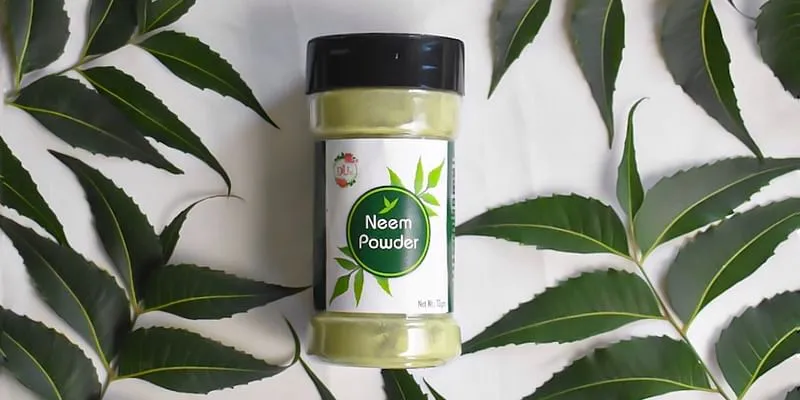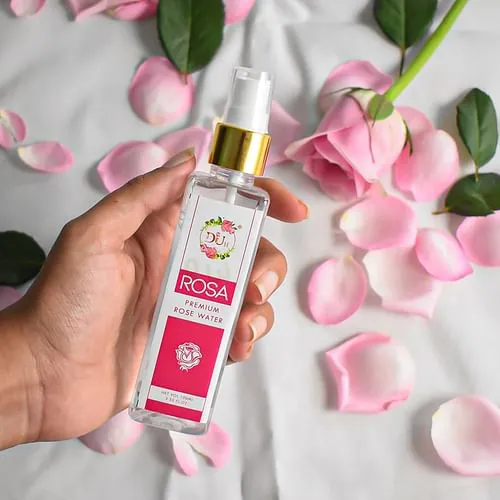Starting her business with Rs 10k, she built a Rs 3Cr revenue herbal products brand in 2 years
In 2019, Disha Dinakar and her parents co-founded Digvijaya Herbals in Vittal, Karnataka. In two years, she has built a range of 140 herbal products, encompassing haircare, skincare, baby care, herbal powders, and more.
Disha Dinakar, and her mother Vijaya Dinakar, have a habit of reading the labels of beauty and health products before buying them. According to Disha — a doctor by profession — these products look aesthetically pleasing but often contain harmful chemicals, as indicated by their labels.
She says, “My mother and I have always been strong believers in organic products and their benefits. We were taken aback to see the harmful chemicals used in a wide range of Indian beauty and health products. This inspired us to start making our own organic herbal products that were 100 percent natural and authentic.”
Disha joined hands with her mother and her father, MN Dinakar Bhat, to launch her own herbal products brand ‘Digvijaya Herbals.’ She started with a small investment of Rs 10,000 in Vittal, Karnataka — a town near Mangaluru — in 2019.
Disha says, “Coming from a family of doctors and ayurvedic practitioners, we launched Digvijaya as a homegrown brand. We also joined hands with a panel of doctors who worked with me on the formulation of our herbal products.”

Neem Powder by Digvijaya Herbals
A promising start
In a short span of time, the business has boomed for the entrepreneur trio of father, mother, and daughter. The newly-launched herbal brand recorded Rs 1 crore turnover in its first year and approximately Rs 3 crore in its second year, Disha claims.
At present, Digvijaya Herbals has a range of 140 products, encompassing haircare, skincare, baby care, herbal powders, and more. The family-owned and operated business has no other investors or shareholders. The brand has an all-female workforce of 15 employees.
So far, Disha has spent a considerable amount of time on product research and development to differentiate her brand from its competitors.
“Our competitors are homegrown organic beauty brands such as Tribe, Ruby’s Organic, Khadi Naturals, etc. But the ingredients used in formulating Digvijaya Herbals’ products are what sets us apart,” she says.
Disha adds, “The ingredients used in our products are 100 percent natural and sourced from Digivjaya’s own organic farms. The manufacturing process takes place in our manufacturing units, keeping all health and hygiene factors in place.”
Digvijaya Herbals uses cold-pressed carrier oils and essential oils that are unprocessed. Sourced from abroad — especially from the Middle East — Digvijay’s organic products are then formulated by a panel of doctors.
A D2C retail strategy
Disha feels most organic brands today are expensive for an average customer. So she sells Digvijaya Herbals’ products from Rs 99 to Rs 1,650 and terms these prices as “affordable.”
The brand retails its herbal products exclusively on its website and through social media platforms. Besides the Indian market, it ships to 45 countries in the Middle East, Europe, Australia, North America, and more. This year, it is planning to enter ecommerce and offline sales in India.

Rose Water by Digvijaya Herbals
Disha says, “Our business strategy is to reinforce a direct-to-consumer relationship. We reached our customers as an entirely new and unique brand, and are now trying to connect with them better through our online presence and strategic campaigns on social media.”
Besides overseeing procurement and manufacturing, the doctor-entrepreneur also handles customer queries and concerns personally.
She says this is no easy task as she practices full-time as a doctor for seafarers and is also pursuing a fellowship programme in aesthetic medicine from the University of Greifswald, Germany.
“My mother has stood by me as a pillar of strength and helped me manage both my practice and Digvijaya Herbals. A tough challenge for us has been to maintain sustainability during the pandemic when business took a hit. However, rising awareness of organic products and their health benefits helped us stay afloat,” she says.
Ambitions for the future
As Indian consumers increasingly reject chemical-laden products made from artificial substances, the ayurvedic and herbal product's market in India is expected to grow from Rs 30,000 crore in 2018 to Rs 71,087 crore in 2024, according to Research and Markets data.
Looking to tap into this growing market, Disha, and her brand, are launching new products and planning to open an 85,000 square feet manufacturing unit to boost production and provide more employment opportunities to women workers.
“My dream is to see Digvijaya Herbals reach Rs 100 crore revenue in five years,” Disha says.
Edited by Suman Singh








